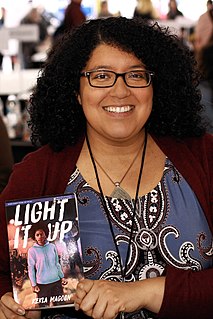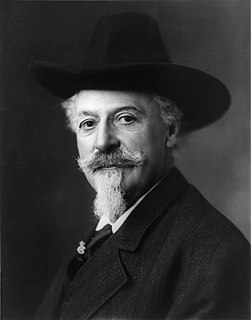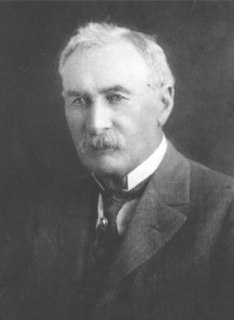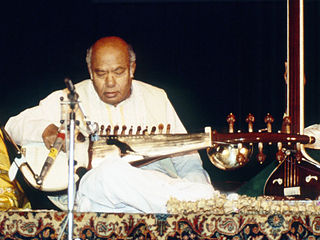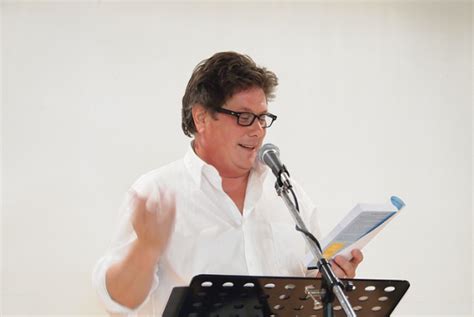A Quote by Henry David Thoreau
I sailed on the North River last night with my flute, and my music was a tinkling stream which meandered with the river, and fell from note to note as a brook from rock to rock. I did not hear the strains after they had issued from the flute, but before they were breathed into it, for the original strain precedes the sound by as much as the echo follows after, and the rest is the perquisite of the rocks and trees and beasts. Unpremeditated music is the true gauge which measures the current of our thoughts, the very undertow of our life's stream.
Related Quotes
When anyone is creating anything, it has no choice but to be in that stream. The art I create and the art my colleagues create is part of it. But the question is: how long will it last in the stream? I think of it really as an enormous river, with its shores very distant from each other, and only time will tell what's going to last in the end. It seems to me that all music of our time is connected, but I never think about where I am in the river or how I would be placed by others inside of it.
Be wild; that is how to clear the river. The river does not flow in polluted, we manage that. The river does not dry up, we block it. If we want to allow it its freedom, we have to allow our ideational lives to be let loose, to stream, letting anything come, initially censoring nothing. That is creative life. It is made up of divine paradox. To create one must be willing to be stone stupid, to sit upon a throne on top of a jackass and spill rubies from one’s mouth. Then the river will flow, then we can stand in the stream of it raining down.
When I'm representing my music live I think of it very much in a rock band sense. When I first started doing festivals in the 90s there really weren't other DJs playing the stages I was playing. So I felt I was being afforded an opportunity to kind of make a statement about what DJ music can be live. In the 90s, if you were a DJ you were in the dance tent, and you were playing house music and techno music. There was no such thing as a DJ - a solo DJ - on a stage, after a rock band and before another rock band: that just didn't happen.
When I was a teenager, I really didn't like loud rock music. I listened to jazz and blues and folk music. I've always preferred acoustic music. And it was only, I suppose, by the time Jethro Tull was getting underway that we did let the music begin to have a harder edge, in particular with the electric guitar being alongside the flute.
Los Angeles was a place after my own heart. The people were hospitable. The country had the same attraction for me that it had for the Indians who originally chose this spot as their place to live. The Los Angeles River was a beautiful, limpid little stream, with willows on its banks. It was so attractive to me that it at once became something about which my whole scheme of life was woven, I loved it so much.
Then Nuvoletta reflected for the last time in her little long life and she made up all her myriads of drifting minds in one. She cancelled all her engauzements. She climbed over the bannistars; she gave a childy cloudy cry: Nuee! Nuee! A lightdress fluttered. She was gone. And into the river that had been a stream . . . there fell a tear, a singult tear, the loveliest of all tears . . . for it was a leaptear. But the river tripped on her by and by, lapping as though her heart was brook: Why, why, why! Weh, O weh! I'se so silly to be flowing but I no canna stay!
Consciousness... does not appear to itself chopped up in bits. Such words as 'chain' or 'train' do not describe it fitly as it presents itself in the first instance. It is nothing jointed; it flows. A 'river' or a 'stream' are the metaphors by which it is most naturally described. In talking of it hereafter, let us call it the stream of thought, of consciousness, or of subjective life. Source of the expression 'stream of consciousness'.
...a river season will last as long as it takes you to reach your new place. If you get into the river and let it take you where you need to be, your river season will last an afternoon. But if you fear change and struggle and hold on to the rocks, the river season will last and last. It will not end until your body becomes exhausted, your grip weakens, your hands slide off the rocks and the current takes you to your new place.


